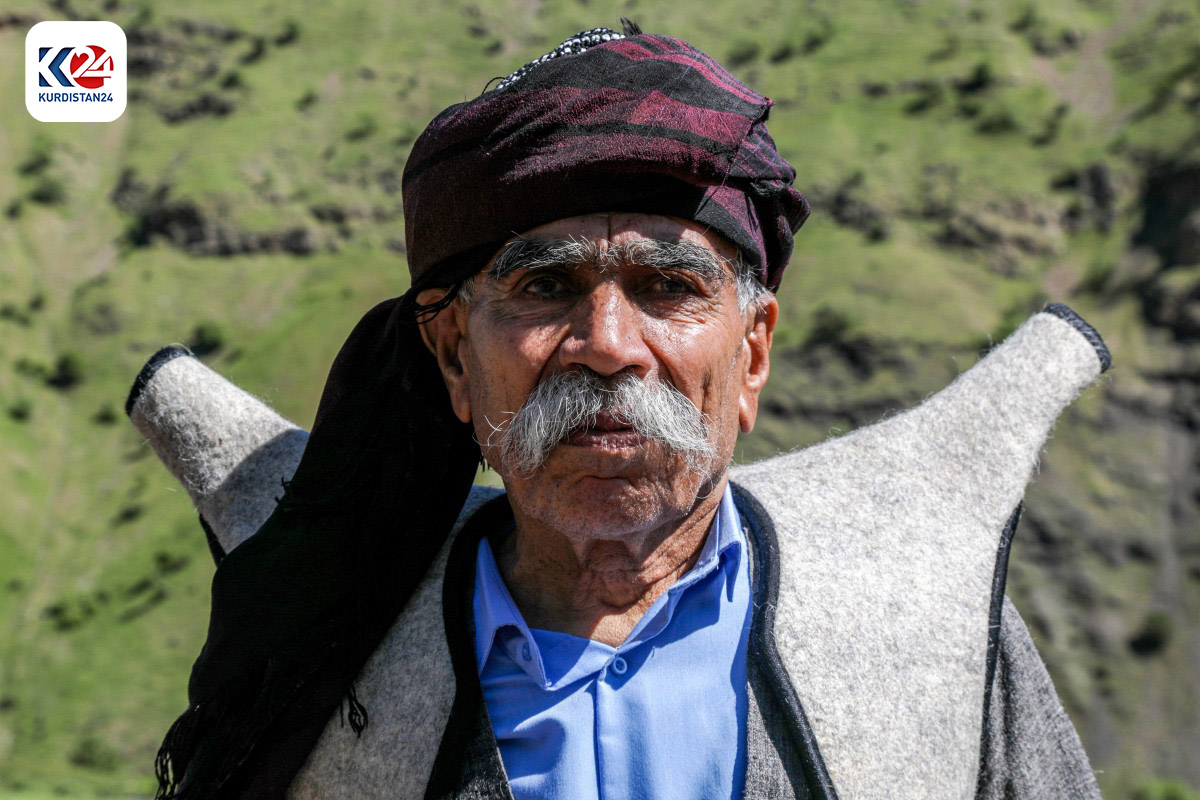Giving Day: Kakai Ritual Blends Devotion, Music, and Generosity
Marked each year in the spring, Giving Day serves as a unique moment when members of the Kakai community come together to reaffirm values of kindness and selflessness.
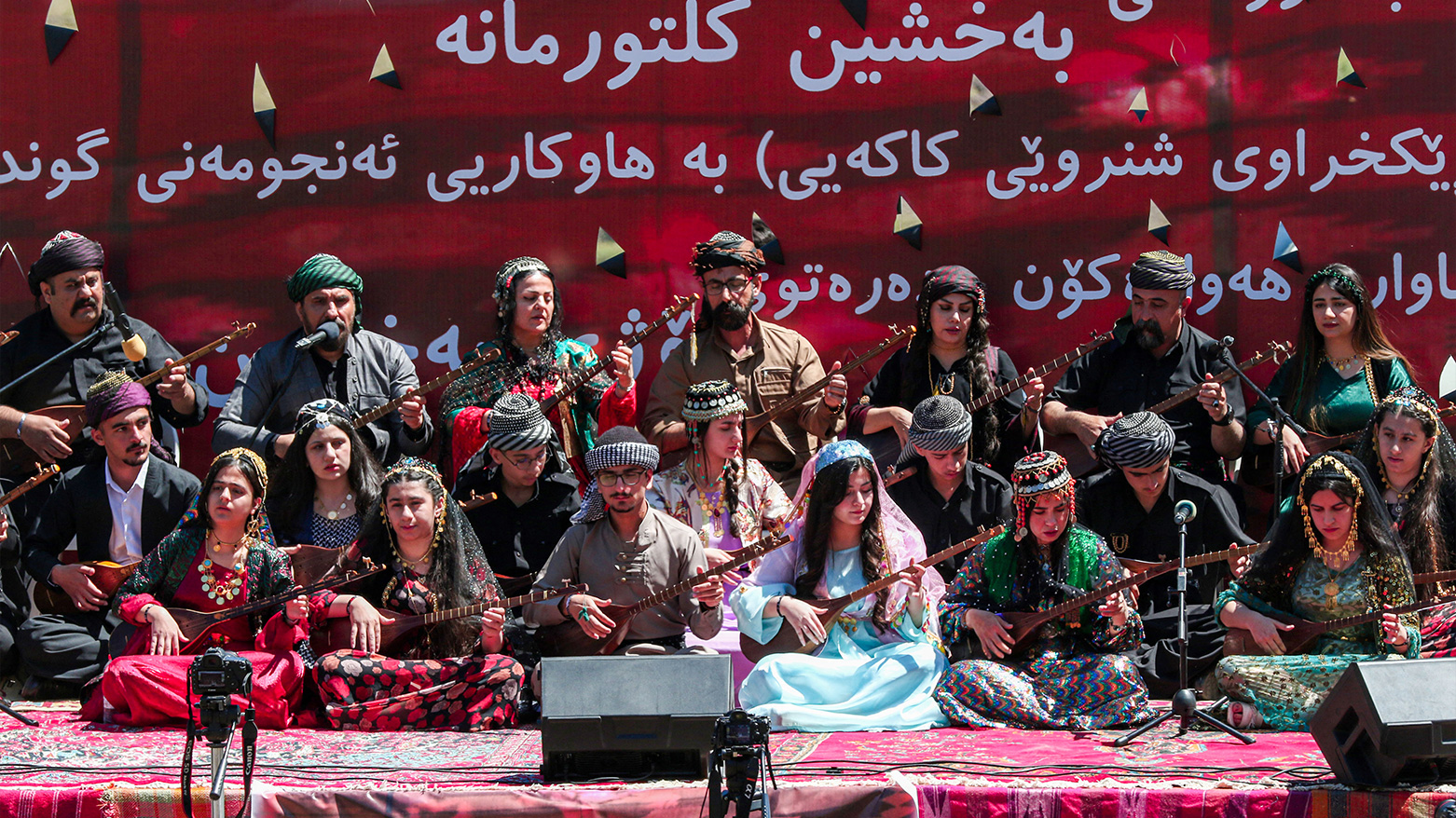
By Kamaran Aziz
ERBIL (Kurdistan24) — Dozens of followers of the Kakai faith gathered in Halabja this April to celebrate "Giving Day," one of the most sacred and socially significant occasions in the Yarsan tradition, also known as Ahl-e Haqq. The annual event is a vibrant expression of spiritual connection, generosity, and communal harmony among adherents of the centuries-old religion.
Marked each year in the spring, Giving Day serves as a unique moment when members of the Kakai community come together to reaffirm values of kindness and selflessness. At the heart of the celebration are religious songs performed to the melodies of the tanbur, a revered stringed instrument and a core spiritual symbol of the Kakai faith. These performances are not merely artistic but deeply devotional, channeling the metaphysical essence of the religion and its sacred narratives.
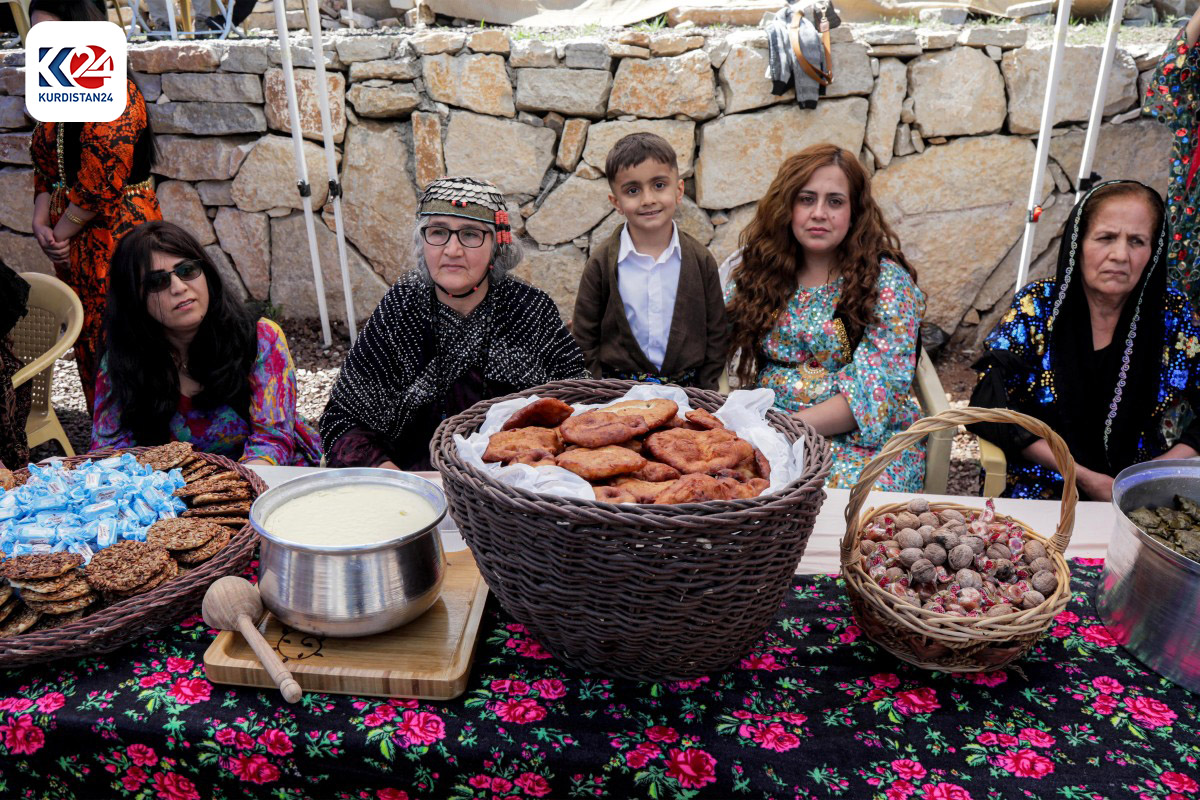
Central to the observance is the act of giving, specifically the distribution of yogurt and other white-colored foods from poor to poor, signifying purity of intention and spiritual equality. This tradition highlights a distinctive aspect of Kakai religious practice: that acts of kindness and charity are not hierarchical but should be shared in humility and sincerity among those who have little to give, yet give nonetheless.
According to a report by the Kurdish Institute of Paris (2023), this ceremony—also known as "Masti Qalati" or the "Castle of Yogurt"—is deeply rooted in Kakai ritual and spiritual belief. The tradition is especially prominent in the Hawraman Lhon region, particularly the villages of Hawar, Hawarakon, and Daratwe in Halabja province. The ritual typically involves the gathering of community members at the Qalate area, near the shrine of revered Kakai figure Mir Askandar. Families contribute yogurt, crops, and dairy products, while also engaging in reconciliation, visiting sacred sites, and providing food for animals and birds.
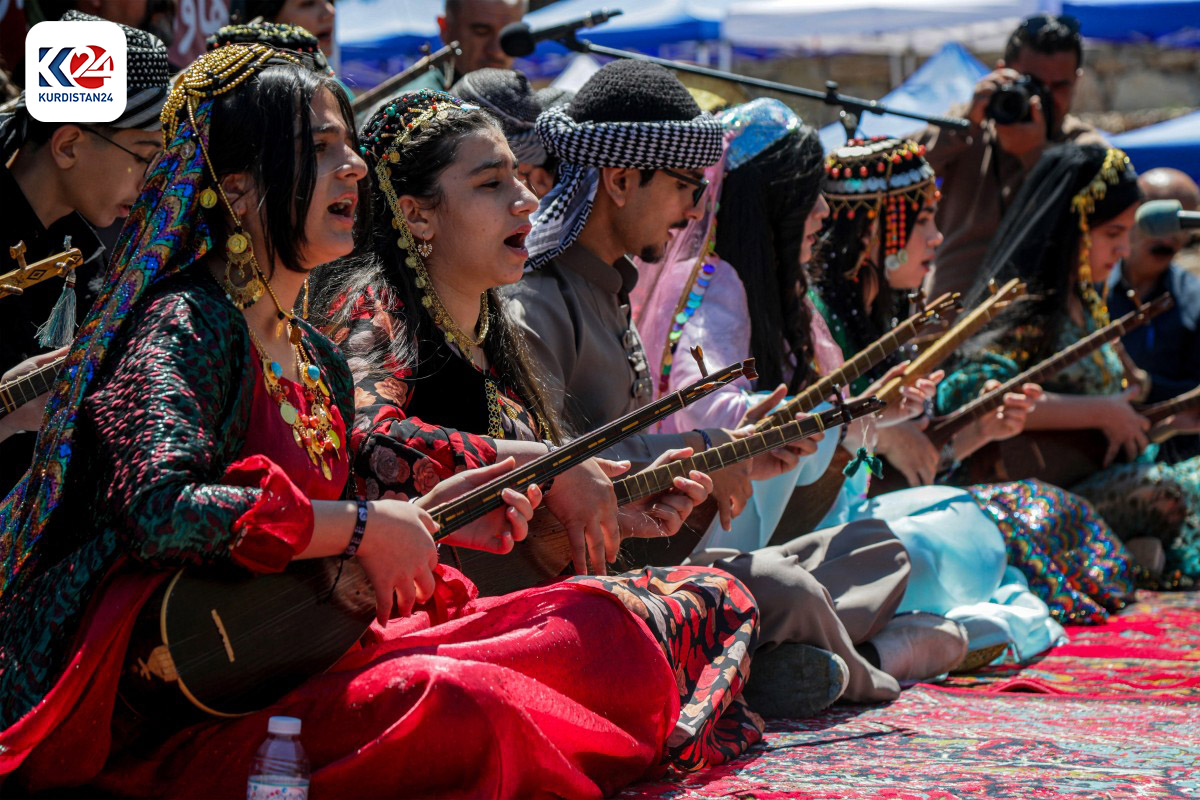
Despite the communal and spiritual richness of Giving Day, much of Kakai religious life remains hidden from public view. As the Kurdish Institute of Paris notes, Kakai rituals are often held in concealed spaces called "Jam Khana," stemming from a belief that religion is a private matter between the individual and God. Historically, this discretion has also been a protective measure, developed in response to persecution and marginalization from both societal and governmental structures.
The Kakai faith, a syncretic tradition blending elements of Islam, Zoroastrianism, and ancient Mesopotamian spirituality, is followed by an estimated 120,000 people in Iraq and the Kurdistan Region. Despite being ethnically Kurdish, 70% of the Kakai population lives outside the administration of the Kurdistan Regional Government, mainly in disputed territories such as Kirkuk, Nineveh, and Diyala.
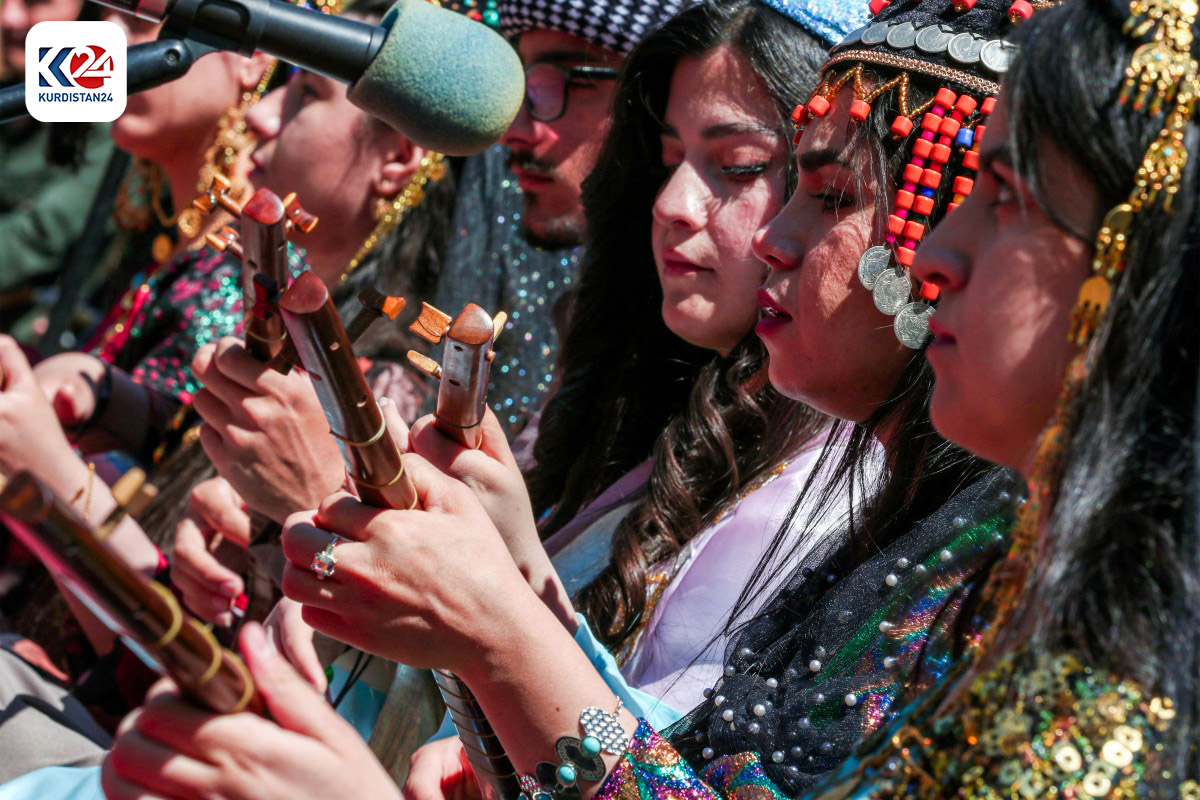
According to Rajab Asi (Rajab Kakai), head of the Mithra Organization for the Development and Culture of Yarsani Kakais, the community enjoys relative freedom of practice in some of these disputed areas. However, extremist threats—especially from Salafi factions and certain Shiite political groups—continue to jeopardize the community’s security and cultural identity. Following the 2017 Kurdish independence referendum, such threats escalated, forcing the displacement of Kakai families from villages in Khanaqin and southern Kirkuk.
As one participant, Rangin Marf, emphasized during the Masti Qalati gathering, recognition remains a key demand: "As Kakais, we wish that Kakais be recognized as an independent faith in the constitutions of the Kurdistan Region and Iraq; this is not only my wish but that of every Kakai."
Through music, food, and shared rituals, Giving Day continues to serve as a powerful expression of the Kakai community’s resilience and devotion. In a region often marked by religious complexity and contestation, their celebration echoes across generations with the enduring message that giving from the heart transcends all material limitations.
